When The Herald approached me for its Scotland’s Defence Future series, I was struck by the scale of the effort. Four days of dedicated reporting on strategic threats, industry, politics and the people whose livelihoods depend on defence is not a small undertaking.
I’ll say it here, Herald Political Editor Andrew Learmonth and his colleagues have given this subject the space and seriousness it deserves. This is fantastic.
🚨 @heraldscotland has launched Scotland’s Defence Future, a four-day series on threats, shipbuilding, industry and politics. @UKDefJournal is proud to be part of this effort. Read work by our editor @geoallison as part of the series. https://t.co/Ur6nziAr2N
— UK Defence Journal (@UKDefJournal) September 22, 2025
Those of us who live and breathe defence reporting know the importance of explaining capability gaps, procurement battles or the long cycles of shipbuilding on the Clyde. But there is a danger in thinking the conversation belongs only to specialists. The audience that matters most may be the readers who do not have years of experience or expertise in this field. They bring different questions and perspectives, and their voices deserve to be heard alongside those of seasoned analysts, often more so.
Day two of @heraldscotland‘s Scotland’s Defence Future series looks at the state of Scottish shipbuilding and what the change in spending priorities might mean.
— Andrew Learmonth (@andrewlearmonth) September 23, 2025
Scotland’s role in defence has always been pivotal. From the regiments that gave the British Army its distinct accent to today’s £9 billion defence industry employing tens of thousands across the country, the scale is significant. Yet the real story is about people as much as it is about platforms and budgets. Workers on the Clyde, radar engineers in Edinburgh, and small firms in rural communities are just as much a part of this national debate as politicians and generals.
What makes this conversation urgent is the moment we are living through. Europe faces the most volatile security environment in decades. Russian aggression continues in Ukraine, NATO air policing is now a routine feature of life in the North Atlantic, and the cyber domain is no longer an abstract battleground but one that touches airports, businesses and households. Add to this the UK Government’s pledge to raise defence spending to 5% of GDP by 2035, the biggest financial shift in a generation, and it becomes clear why Scotland’s stake in this debate must be understood.
In this series, I have contributed a piece on shipbuilding, looking at the peaks and troughs of Clyde yards, and the new wave of investment reshaping the industry. That story is one of resilience, renewal and lessons learned the hard way. Scotland’s shipyards have been through decline and revival before, but what is different today is the combination of digital transformation, export ambitions, and strategic urgency.
The Herald truly deserves praise for bringing together such a wide range of voices. In a media environment that often prizes speed over depth, this series is an example of good old fashioned journalism: carefully assembled, designed to inform, and rare nowadays in its scope and ambition.
Defence may sometimes feel remote, but in reality it is close to home: in jobs, in local economies, in national security and in the choices that shape the future. The more people who engage with these issues, the healthier and more grounded our national debate will be.
You can read the full series here: Scotland’s Defence Future


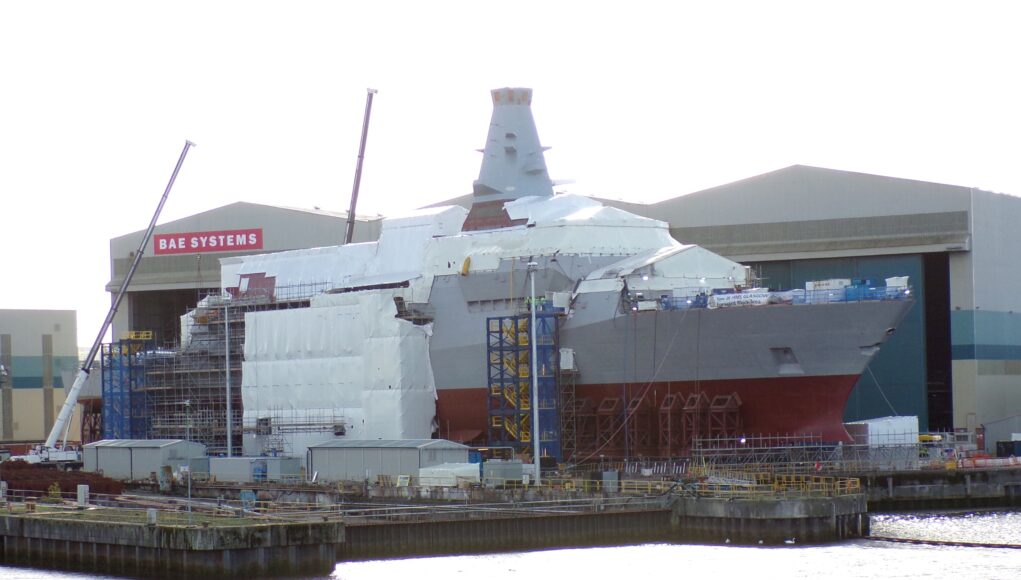
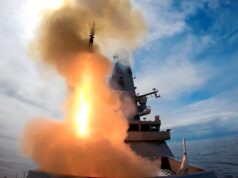


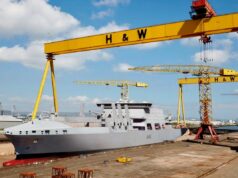

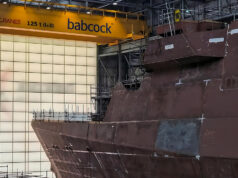


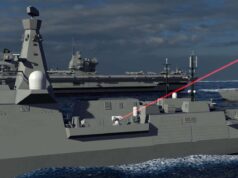


Well done George, good piece including a soupçon of poetic nostalgia.
As much as I liked your article, and I did, I feel that the “Scotland risks losing shipbuilding billions without finance reform.†article by Learmonth and McCurdy that really sets the tone; levelling the playing field and anchoring the industry as a whole is vital. Play the Europeans at their own game.
If by own terms what is meant is government subsidies to keep low value industries alive I’m dead against it.
Outside of warships I don’t want to see the UK building any commercial vessels. It’s a low value added industry better done else where.
If we concentrate on using the money to build our own navy and we maintain continuous surface ship build programs with BAE and Babcock we can attract plenty of high value added naval builds.
Trying to jump into commercial work requiring subsidies only jacks up prices for skilled workers.
It’s continuous build that is the key, that’s why the French and Spanish have been successful in the past and why we are suddenly being successful. Between 2001 and 2016 we had no frigate product to sell to anyone so we didn’t sell any frigates.
I agree about continous naval buils.
However, there will be a lot of small boat/ship builders who would be disappointed in your dismissal of commercial shipbuilding, and we do have crossover in companies like MSubs, Atlas Electronic, MST and Fergusons. If they don’t do commercial they won’t necessarily survive for the next time the Navy decides it needs them.
I did not moot commercial shipping, that’s your idée fixe, one that I’ve seen you espouse upon previously and it’s not a perspective held by everyone.
But now that you have broached the subject …
There is plenty of scope to engage in that sector when and where it can be advantageous to keep skilled engineers employed on a continual basis, engineers can and will follow the work, Ferguson a couple of years, the Govan next, it’s not static per se. However, the work has to be there and as such having a competitive ship manufacturing industry is fundermental to the whole enterprise.
[“…It’s a low value added industry better done else where.â€] That’s a sweeping generalisation of the industry. No one is suggesting that the UK is trying to emulate the likes of South Korea, China, Vietnam, Turkey or India in the commercial scenario, that would be silly, very silly, but it does need to be proactive to pick up what contracts it can foster to strengthen and underpin the industries foundations.
The UK is up against Damen Naval (The Netherlands), Fincantieri (Italy), Naval Group (France), Navantia (Spain), SAAB Kockums (Sweden), and Naval Vessels Lürssen and thyssenkrupp Marine Systems (Germany). Other stakeholders are ATLAS Elektronik, Blohm+Voss, Cetena, CTN, Fincantieri NextTech, Naviris, MARIN, OMT, SAES, Sirenha, SEA Europe, and TNO. They are not low value added industry, those companies have succesfull commercial yards, yards that cultivate a robust workforce that are able to oscillate between naval and commercial employment.
If your ship engineers are limited to their profession by government naval contracts you end up with a diminishing workforce as the government can not sustain naval ship building on a level required for continuous employment and perpetuate the skills. French and Spanish engineers have a viable commercial industry to fallback on when the government orders are slow.
Monies are recuperated.
Did you read the article in the link kindly supplied by George.
“Scotland risks losing shipbuilding billions without finance reformâ€
🚮
The Scottish government was trying exactly to emulate Turkey and other developing countries by building small commercial ferries. It pissed a great deal of public money up the wall to “save†a handful of jobs.
“Scotlands Defence future deserves wide attention”
Well George, no one can say you are not giving it as much attention as you can.
If I wasn’t here, I’d not see anything at all about Scottish Involvement in the UK’s Defence. (other than knowing about the Ships being built).
Oh, god not this again.
Why not?
It is an important and relevant conversation.
@George is leading and then echoing the conversation to amplify it.
A £10Bn export order isn’t trivial. Probably with more to follow.
Yes.
Personally I have two concerns about Scottish ship building. Firstly, the attitude of the Scottish government. They seem to look on it as a way to score political points or misrepresent the facts rather than championing the industry itself. Secondly, concerns that it will continue boom and bust. It needs the British government to set up long term building programmes to ensure continuity of training/recruitment/employment and keep a large experienced workforce.
Defence should never be remote. Health, Education and Social Services get most of the recognition as being ‘essential’, but Defence is just as important and should be promoted as being just as important. Ask countries like Ukraine – think they might reinforce that belief.